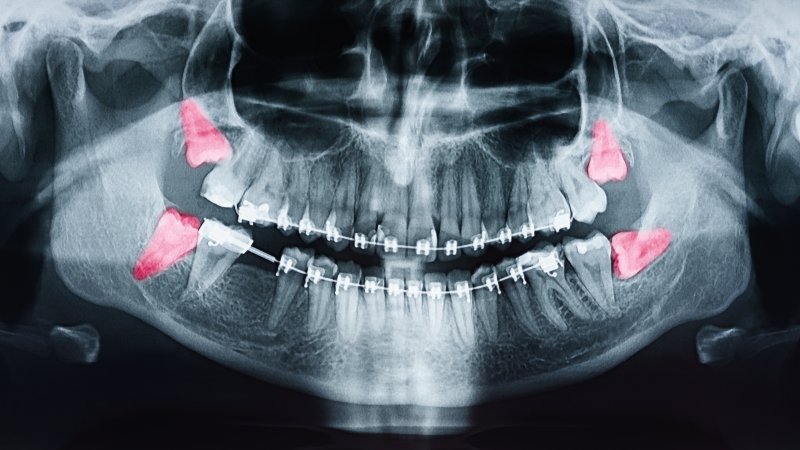
Wisdom tooth removal is considered almost a rite of passage for most older teenagers and young adults. Often referred to as “third molars,” these four teeth can erupt without any problems for some individuals while others experience pain and discomfort as a result of impaction or infection. In this article, we will hear from a local dentist who explains why certain situations require the need for wisdom teeth extraction to avoid more serious and complex problems in the future.
What is the Purpose of Wisdom Teeth?
Wisdom teeth were once a vital component when it came to eating and chewing in the early days of civilization. Because the foods were coarser and denser, these teeth helped to break down the food and ultimately allow for proper consumption. However, as evolution occurred, jaws became narrower because of more refined diets, causing these teeth to no longer serve a substantial purpose.
Nowadays, most individuals believe that removing them is just “part of the process,” but in fact, many people do not require oral surgery because their wisdom teeth erupted without a problem. But many dentists are discovering there are situations in which these third molars can do more harm than good, especially since they do not fit inside the mouth properly. As a result, this improper placement can cause an increased risk for tooth decay, gum disease, or another serious infection.
3 Reasons for Wisdom Tooth Removal
When seeing a qualified oral surgeon about the potential for wisdom teeth removal, they will need to examine your oral cavity and review dental x-rays to determine exactly how these third molars are positioned within your mouth. Should they discover any of the following scenarios, there is a good chance you will be preparing for wisdom tooth extraction sooner than you might think:
- Infection – When a wisdom tooth is unable to fully erupt, the gums cannot adequately seal the area around the neck of the tooth to keep bacteria out. As a result, an infection can develop that causes these tissues to become irritated, causing pain and swelling to occur.
- Cysts – If a wisdom tooth is impacted, which means it is lying beneath the surface of the gum line, a cyst can form in the jawbone. Over time, the bone can deteriorate and begin to negatively impact nearby teeth.
- Improper Growth That Damages Teeth – Should a wisdom tooth grow sideways and press against the second molar, it can cause significant damage, resulting in the potential for decay, gum disease, and bone loss.
Even if you are not experiencing issues with your wisdom teeth, you may find it beneficial to speak to an oral surgeon or your dentist about the removal of these teeth, especially if you are fearful that any of the above-mentioned problems could occur.
An important fact to remember is that undergoing this type of oral surgery when you are younger is much less risky than when you are older, as complications can arise with age. By choosing to seek the help of a professional who can safeguard your smile early on, you can avoid pain, swelling, and additional oral health problems that often come with wisdom teeth.
About the Author
Dr. Clifford D. Luttrell, Sr. completed his doctorate at the University of Texas Health Science Center Dental School in San Antonio in 1987 alongside his colleague, Dr. David Gomillion, who serves as his fellow partner at Boerne Dental Center. Serving in the U.S. Navy for 10 years, he completed additional training in oral surgery before joining his current practice. Performing most of the surgical procedures, he can help patients who need their wisdom teeth removed achieve relief from pain and enjoy healthier smiles. If you believe you could benefit from wisdom teeth extraction, contact us via the website or by calling (830) 249-2045.